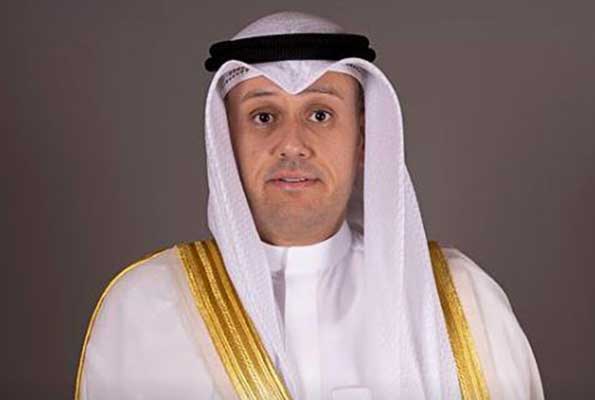Fahad Al-Jarallah has been named Kuwait’s new Finance Minister following the resignation of Manaf Al-Hajerih from the position in the middle of July 2023.
The development comes at a time when the International Monetary Fund (IMF) is predicting a hard road ahead for the country’s economy.
“Kuwait’s economic recovery is ongoing but risks to the oil producer’s outlook ‘remain substantial’ and gridlock between the government and parliament continues to delay reforms,” the apex monetary body commented in its latest outlook for the Middle Eastern country.
The IMF’s executive board, in an assessment following “Article IV” consultations with the Kuwaiti government, said the country’s real GDP is slowing to just 0.1% by 2023 after 8.2% growth in 2022, mainly due to oil production cuts.
It is to be noted here that Kuwait is part of OPEC+, a producer group comprising the Saudi-led Organization of the Petroleum Exporting Countries and Russia-led allies, which has been cutting crude output since November 2022 to prop up prices.
Manaf Al-Hajerih’s Resignation
In August 2023, Fahad Al-Jarallah was chosen to serve as the Ministry of Finance’s assistant undersecretary. He is a businessman who has held positions on the boards of Noor Financial Investment Company and the Commercial Bank of Kuwait.
Al-Hajeri, the former finance minister, left his position on July 11, 2023, only three months into his tenure. The Kuwait Investment Authority (KIA) was transferred to the Minister of Economic and Investment Affairs, a move that he reportedly objected to, according to local media sources.
Saad Al Barrak was appointed oil minister in Kuwait’s fifth new administration in less than a year, which was announced in June.
Kuwait’s oil assets are managed by the KIA, a sovereign wealth fund with a USD 700 billion market cap. Normally, the finance minister holds the leadership role, but Al-Barrak was appointed to it in June 2023.
According to sources at the time, Al-Hajeri disagreed with this choice because he thought it would make the finance ministry’s oversight over the KIA less effective. He was reportedly also dissatisfied with how the government was managing the economy, which was experiencing several difficulties at the time, including a drop in oil prices and an increase in the national debt.
His departure was the most recent in Kuwait’s string of political turbulence. The nation has had five different governments in less than a year, and the opposition controls the current parliament. The administration has found it challenging to carry out changes as a result, and the future of the nation is now quite uncertain. Fahad Al-Jarallah is Kuwait’s sixth finance minister in less than three years.
Feuding between successive appointed cabinets and elected parliaments has been known as a ‘hampering factor’ preventing Kuwait’s fiscal reform for years. The same factor also prevented the passing of a debt law that would have allowed Kuwait to borrow international debt.
“Resolving the impasse is critical to accelerate reform momentum, and to thereby boost growth and diversify the economy,” the IMF said.
Overview of Kuwait’s economy
In the short term, Kuwait’s economy is functioning well, but in the medium to long term, it confronts a variety of difficulties. The economy is currently gaining from rising oil prices. About 80% of Kuwait’s government revenue comes from oil exports, and the country has been using the money to increase its reserves and finance social programs.
Due to decreased oil prices and production restrictions, Kuwait’s growth is anticipated to decelerate dramatically this year. The country’s fiscal year 2023–24 budget, which was approved last month, projects a USD 22 billion deficit.
According to Fitch Solutions, the GDP expanded by 8.2% in 2022 and is projected to expand by 2.7% in 2023.
But over the medium to long run, the economy will encounter a lot of difficulties. Since oil prices are erratic, they can decrease in the future. Kuwait also has a sizable public debt, which CEIC estimates at USD 845.9 million as of May 2023 and will likely increase over the next few years.
According to independent research firm AlShall Consulting, Kuwait’s budget surplus by the end of September 2023 would be 2.2 billion dinars, and by the end of the fiscal year, total revenues would be 31.8 billion dinars “if the level of production and prices remained unchanged”.
Spending was estimated at 23.065 billion dinars in a previous draft of the state budget for the fiscal year beginning April 2022 as opposed to 23.048 billion in the 2021–2022 budget.
In the lack of parliamentary approval for the following budget, the finance minister had stated in August that the government had been operating on the 2021–2022 budget.
According to the most recent budget report, increased investment includes 157 million dinars for new categories of pandemic frontline workers and 300 million dinars for cash payments to government employees who had unpaid yearly leave.
The International Monetary Fund (IMF) forecasts that Kuwait’s GDP will expand by 0.9% this year, but its inflation rate will increase to 3.3%.
Fitch, a rating agency, confirmed Kuwait’s Long-Term Foreign-Currency Issuer Default Rating (IDR) at ‘AA-‘ in January and described Kuwait’s outlook as stable because of its “exceptionally strong fiscal and external balance sheets.”
Image Credit: Ministry of Finance – Kuwait



